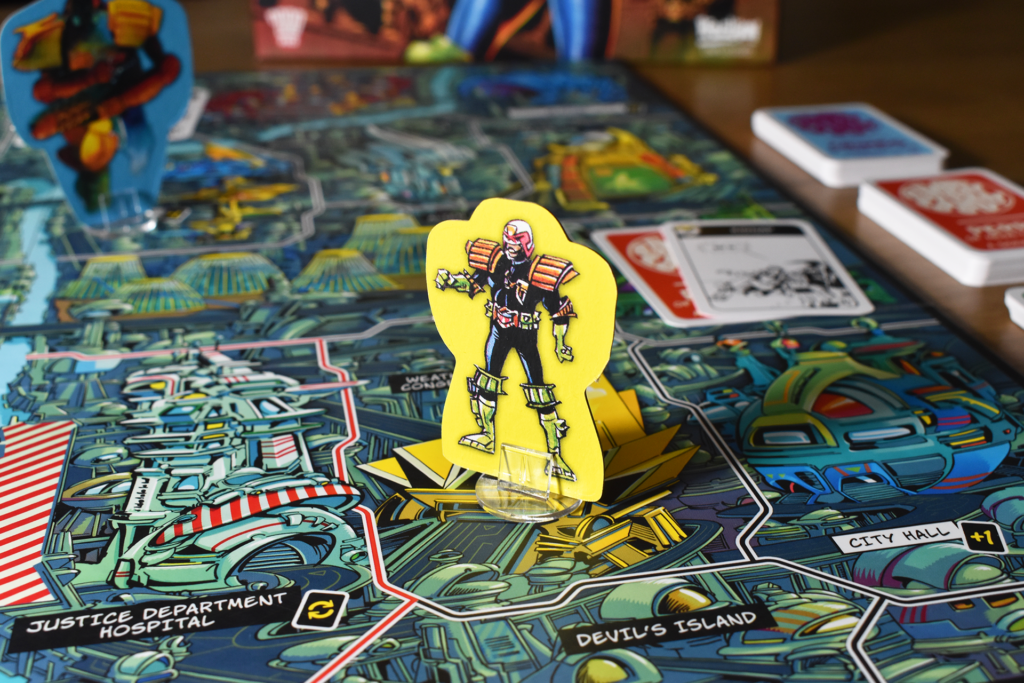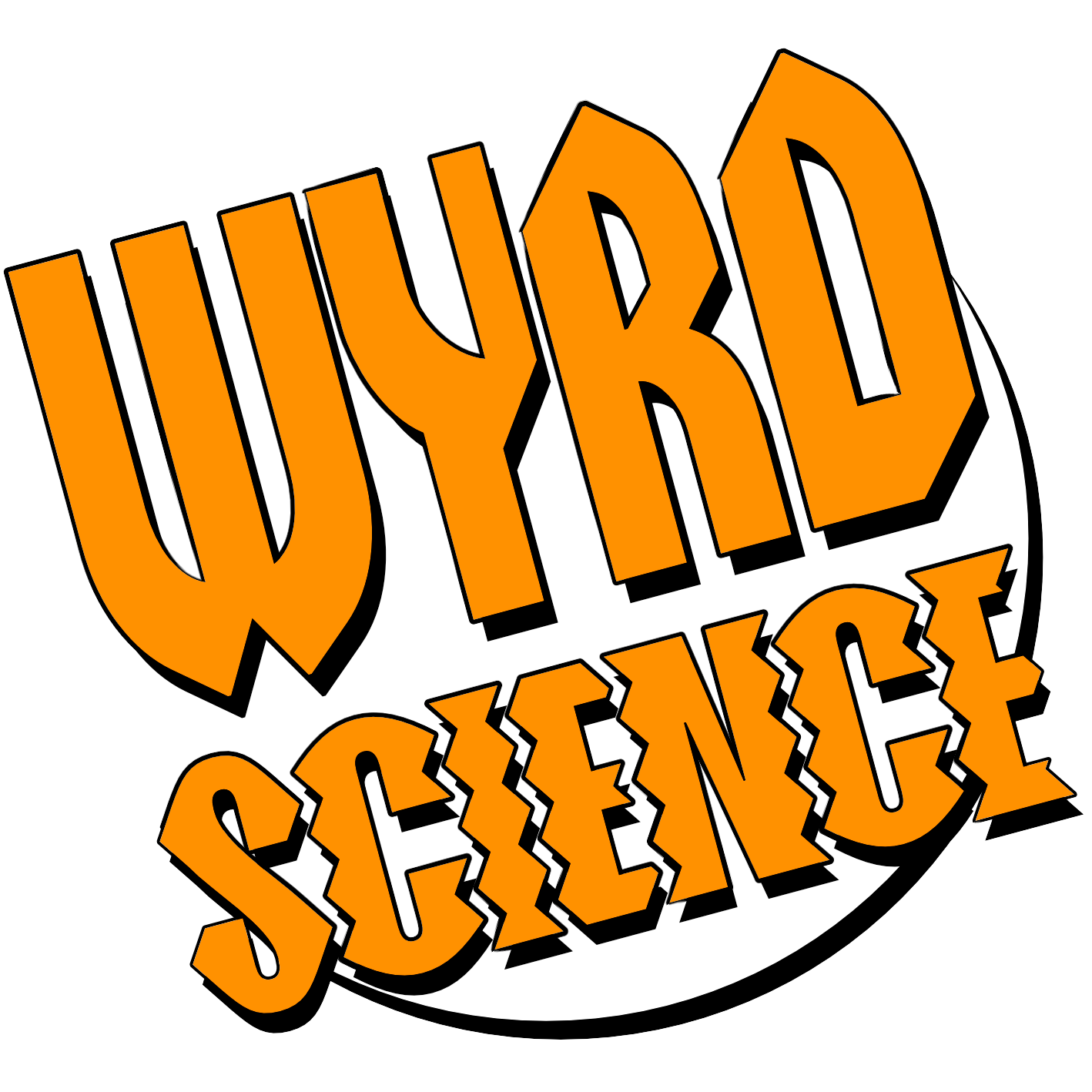
Whilst we impatiently await news of a new Judge Dredd RPG, and we all know they must be cooking something up, Rebellion Unplugged have been keeping us busy revisiting some of the classic Dredd boardgames of the 1980s.
Following on from Block Mania, we now have a re-release of 1982’s Judge Dredd: The Game of Crime-Fighting In Mega-City One, to give it its full, if somewhat cumbersome, title. Designed by avowed 2000AD fan Ian Livingstone and originally released by Games Workshop in 1982, the game has been given an incredibly light spit and polish to bring it at least a little up to date.
Thankfully the classic Dave Gibson and Brian Bolland art has been retained with just the colours re-touched by Pye Parr making both the game-board, a gorgeous map of Mega-City One, and player standees pop. Unlike the original one-size-fits-all approach, players also now get to choose between six different Judges, from a fresh faced recruit to a hulking robo-Judge, each with their own strengths and special abilities.
For good and bad though the core rules have, pretty much, been left as they were with just a few new cards and one or two procedures stream-lined to facilitate slightly faster play, but if you whiled-away a grey British Sunday afternoon in the 1980s, stretched out on the shag-pile playing this then the experience will be eerily familiar. And that of course is almost entirely the point.
I can’t imagine there’s been a huge clamour for the return of this game over the years because of its gameplay but, much like Block Mania, this is sure to find an audience among those of us of a certain age for whom its ludicrous crime fighting capers will be sure to deliver a nostalgia fuelled dopamine hit.

Not that it’s actually a bad game, whilst the intervening decades have plenty of advances in board game design, Judge Dredd is still a perfectly serviceable, if lightweight, little number to enjoy along with a few, or indeed many, synthi-beers and pretzels.
The aim of the game is simple enough. Crimes are being committed and it’s your job to curb stomp the perps responsible. The way the game represents this is actually one of its highlights as random crime and criminal cards are placed together in various sectors dotted around the map, which you then need to rush to and apprehend.
As befits Mega-City One the crimes range from the mundane, such as Armed Robbery, through to those peculiar to Dredd’s megalopolis, like Old Comic Selling. Meanwhile the criminals are a veritable rogue’s gallery from Rico Dredd to the Fink Brothers. Half the fun here is the often wild juxtaposition of crime and criminal, as when Dredd’s arch nemesis and inter-galactic superfiend Judge Death inevitably surfaces and puts off his usual wanton killing spree to partake in a spot of littering.
Players can assist each other in making arrests, almost a necessity for some of the more fearsome felons, but are also able to sabotage each other, making a trip to the Justice Department hospital all the more likely. Throw in random events such as escapes from Mega-City’s alien zoo, outbreaks of radioactive spiders or the chance of having someone encased in a giant plastic bubble fall on your head from a great height and there’s at least no let up of the game’s murderous mayhem.
Whilst you don’t have to have played this game as a kid to enjoy it today, you do probably need to have some affection for the source material. Its mix of incredibly simple rules, fairly arbitrary randomness and the take that nature of play will be a turn off for many modern board game fans. But the combination of all that wonderful Dredd art and the game’s wholehearted embrace of the sheer ridiculousness of his world was enough to win me over once again.
Game design: Ian Livingstone
Art: Brian Bolland, Ian Gibson
Published by Rebellion Unplugged
This feature originally appeared in Wyrd Science Vol.1, Issue 4 (April '23)

